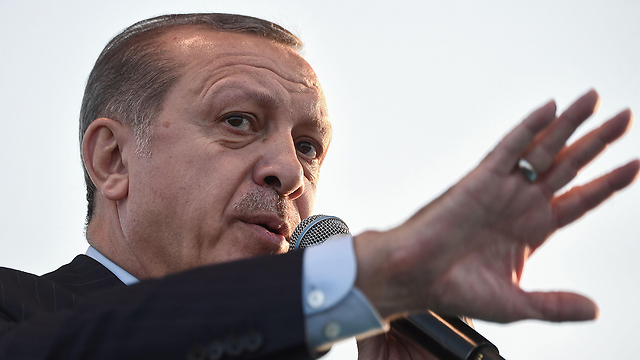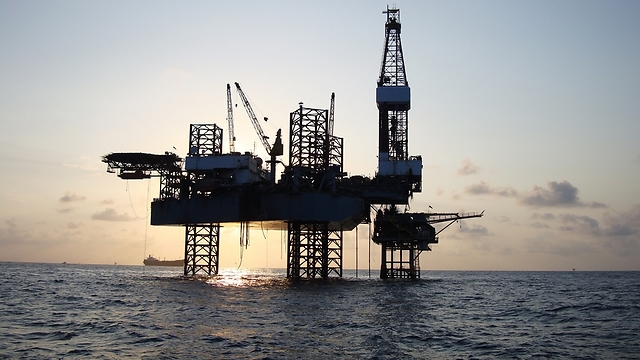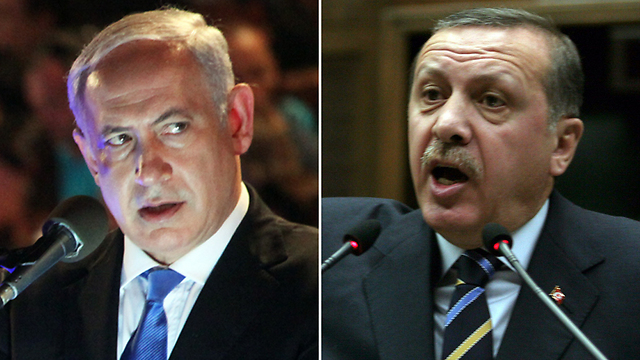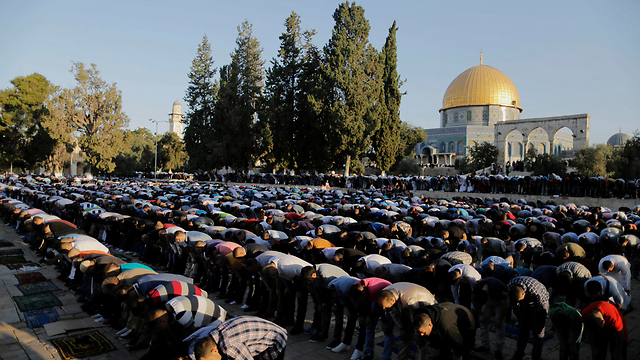
Erdogan's outburst: Energy, politics and Hamas
Analysis: The Turkish president's surprising and slanderous attack against Israel could be motivated by any number of factors such as delays in energy deals, concern over Israel's relations with Cyprus or loyalty to the Hamas cause.
Jerusalem chose a sharp response to Erdogan's vitriolic statements, in contrast to its usual ignoring of such provocative utterances in the past. The Foreign Ministry issued a statement in response, saying, "He who systematically violates human rights in his country should not preach morality to the only true democracy in the region. Israel adheres strictly to full freedom of worship for Jews, Muslims, and Christians—and will continue to do so in spite of baseless slander."
The sudden attack has prompted many to question the motivation of such an outburst. Senior political sources say there was no apparent reason, especially given that relations between Turkey and Israel are currently steady.
On the political level, there is dialogue between the two countries. Foreign Ministry Director General Yuval Rotem visited last Ankara last January for the first diplomatic dialogue between in six years.
The Israeli Ambassador to Turkey, Eitan Na'eh, enjoys free access to Turkish leadership and is warmly welcomed at all levels. Similarly, the Turkish Ambassador to Israel, Kemal Okem, has integrated well in Israel and regularly meets with cabinet ministers and other officials.
Last year, the two countries signed a reconciliation agreement after a prolonged slump in relations following the Gaza flotilla raid in 2010.
One of the most important issues in the relationship since the reconciliation was the matter of Israel's natural gas reserves and the construction of a pipeline from Israel's coast to Turkey.
The two sides have made progress in negotiating the transfer of the gas from the Israeli coast to Turkey and to date, Israeli and Turkish teams have discussed the issue four times.
Erdogan's outburst may be related to the frustration on the Turkish side that Israel is overly sensitive to Cypriot concerns about Turkey's economic ties with Israel. Israel is not willing to harm Cypriot interests and the Turks are not really willing to cooperate with them.
The energy ministers of Israel, Cyprus, Greece, Italy and the European Union signed a joint declaration last month to promote the laying of the longest marine natural gas pipeline in the world between Israel and Europe.
The Director General of the Ministry of Energy, Shaul Meridor, made it clear two weeks ago that Israel was examining various export options, noting that a deal with Greece or another country did not rule out an agreement with Erdogan's country.
"The construction of a marine pipeline from Israel to Turkey at a length of 550km has an estimated worth of $2 billion and will be financed by the private sector," said Meridor at an energy conference in Istanbul. The deputy energy minister of Turkey was in Israel a month ago to further the project.
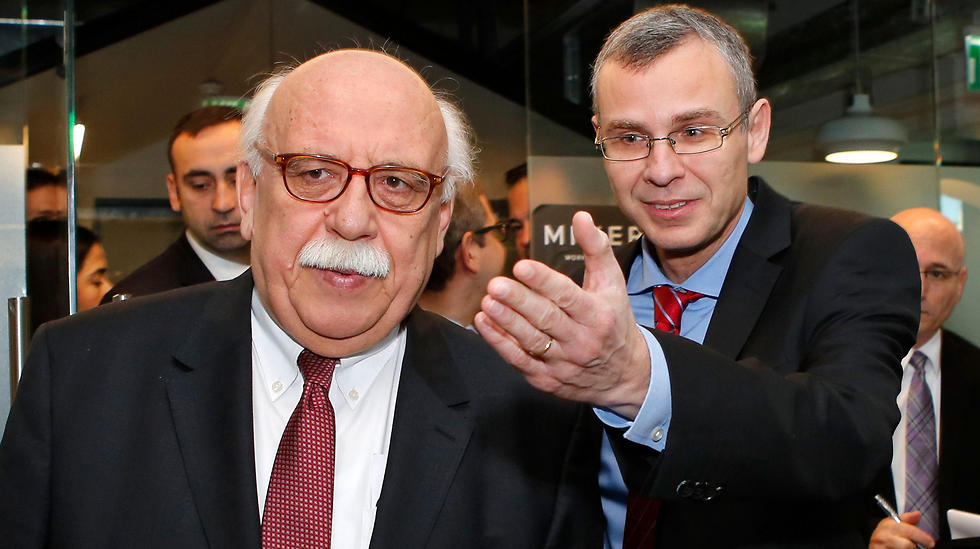
Signs of reconciliation are also evident in the tourism industry.
In 2006, some 300,000 Israelis visited Turkey—an increase of 31 percent compared to the previous year. While these do not match the large numbers that preceded the Mavi Marmara crisis, there is certainly a significant increase in the number of Israelis who are vacationing in Turkey.
Turkish Tourism Minister Nabi Abaki arrived at the Israel Tourism Fair in February and expressed his hope that 600,000 Israeli tourists will visit Turkey every year. Since the beginning of the year, there has been a further increase in the number of Israelis vacationing in Turkey.
So what made Erdogan open his mouth now? The usual explanation in Jerusalem is that the Turkish president has held back since the reconciliation agreement. However, other officials believe he feels so entrenched as president, that he is almost a dictator and also desires supreme religious authority. The event where he made his comments—a gathering of the Al-Quds Waqf International Forum—put him in a sort of "religious ecstasy." He understands that Europe has closed its gates to him and returns to his post as head of the Muslims.
Another explanation given by senior officials in Jerusalem is that Erdogan is signaling to Hamas that he has a great deal of weight on the Palestinian issue and is demonstrating that he can be their patron.
It may also be related to the concern of Erdogan, who sees himself as a Hamas patron in contrast to President Donald Trump's peace initiative, which embraces Mahmoud Abbas at the expense of Hamas.
(Translated and edited by Fred Goldberg)










